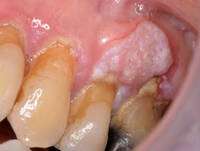Author Interviews, Cancer Research, Gastrointestinal Disease / 20.05.2022
Esophageal Cancer and Barrett’s Esophagus: Middle-Aged Patients Face Rising Risk
MedicalResearch.com Interview with:
Bashar J. Qumseya, MD, MPH, FASGE
Associate Professor of Medicine
Chief of Endoscopy
University of Florida, Gainesville
MedicalResearch.com: What is the background for this study? What are the main findings?
Response: Barrett’s esophagus (BE), is a premalignant condition that can lead to esophageal cancer (called esophageal adenocarcinoma). Both diseases have historically been thought of as diseases of elderly white males.
While both diseases have been on the rise in the elderly population, we noted that some cancers are becoming more common at younger ages. We wanted to see if the prevalence of BE and EC are increasing at younger ages. We aimed to assess the prevalence of BE in and EAC based on age group in a large database of over 5 million patients. (more…)




























 Catharina Svanborg M.D., Ph.D.
Professor at Lund University Department of Laboratory Medicine,
Division of Microbiology, Immunology and Glycobiology
Founder/Chairman of the Board at HAMLET Pharma
MedicalResearch.com: What is the background for this study?
Catharina Svanborg M.D., Ph.D.
Professor at Lund University Department of Laboratory Medicine,
Division of Microbiology, Immunology and Glycobiology
Founder/Chairman of the Board at HAMLET Pharma
MedicalResearch.com: What is the background for this study?


